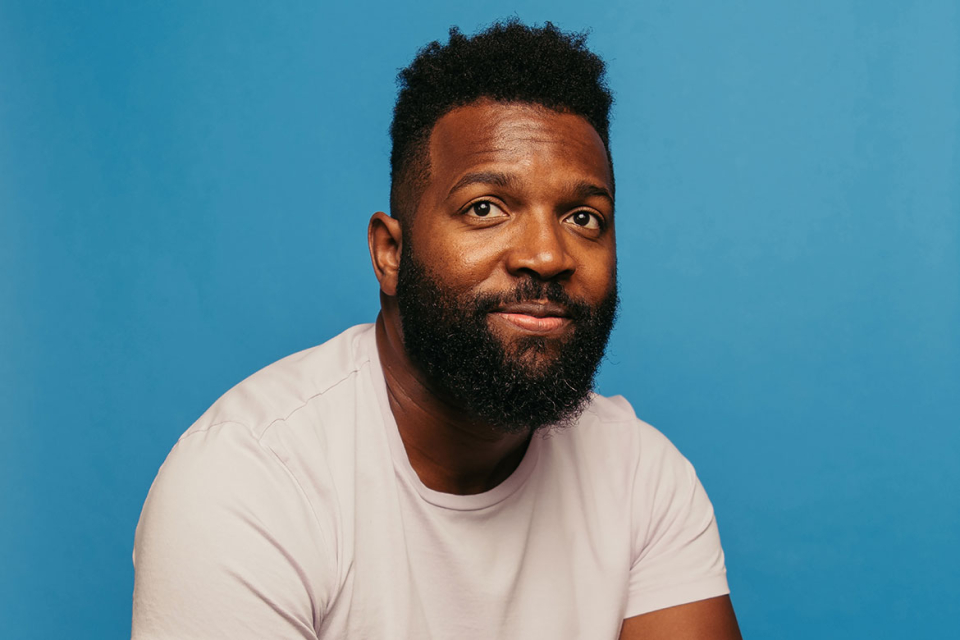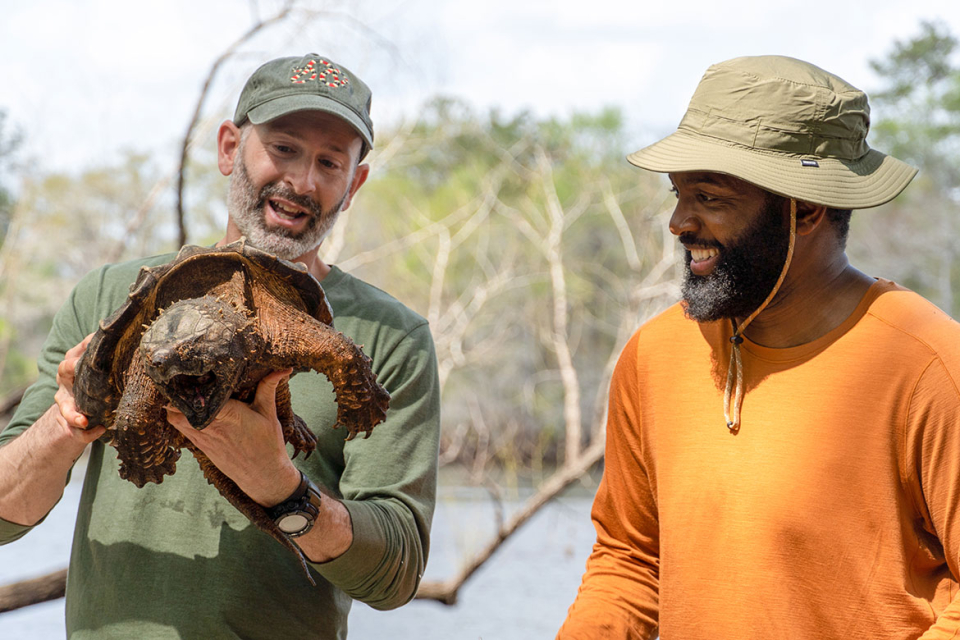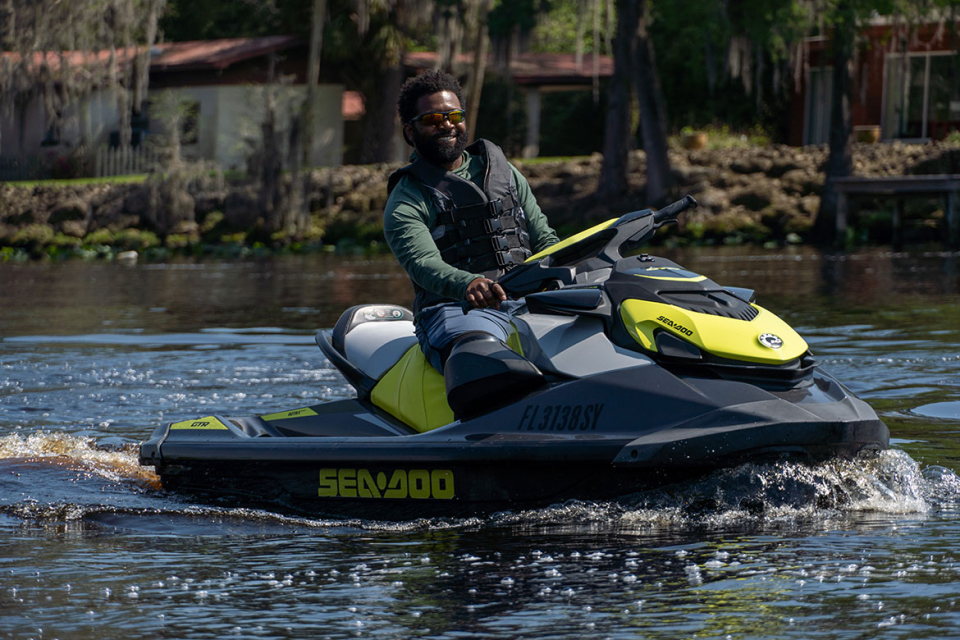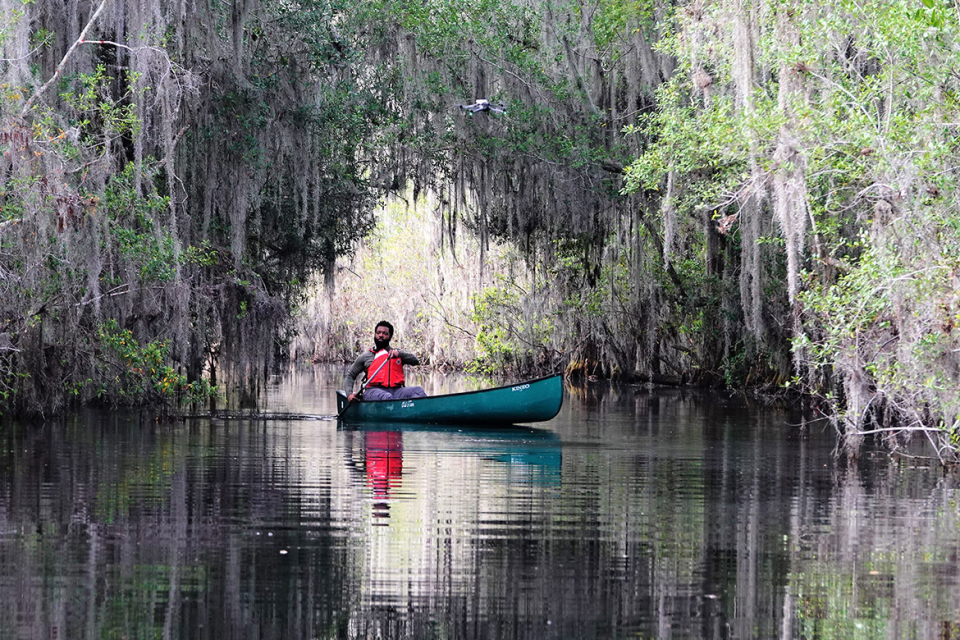"How does our relationship with the outdoors define us, as individuals and as a nation?"
That's the question posed by Baratunde Thurston, host and an executive producer of the PBS series America Outdoors with Baratunde Thurston, which returns for its second season September 6. In a country whose landscapes are as diverse as its residents, Thurston is eager to find out, in the process exploring how issues such as race and climate affect people's experiences outside.
In the season's first of six episodes, for instance, he travels to the Suwannee River in Georgia and Florida, blissfully paddling solo on the water while enjoying the sunlight and the sounds of frogs and birds. He also attends an outdoor church service and rides with members of the Buffalo Soldiers Motorcycle Club, whose name reflects that of the post-Civil War Black military troops. "You can really ride while enjoying the environment," one biker says.
The other five episodes capture activities such as spearfishing in Oregon and ice harvesting in Maine, delve into the motivations of modern-day pilgrims in Utah, uncover outdoor highlights in often-overlooked Arkansas and examine the influence of New Mexico's history on its current denizens' reimagining of their outdoor lives.
"This season is physically intense, visually stunning, wildly diverse and emotionally intense at times," says Thurston, a former producer of The Daily Show who is an author (How to Be Black), podcaster and comedian. "There's a way to make a show about the outdoors, which is like a TV version of a postcard. It looks very pretty. That is not the show we're making.
"We're making a show about people who have, for various reasons, a deep connection to nature. And in this season, sometimes that connection is traumatic. There's a lot of focus on mental health: foster kids fly fishing in Arkansas, recovering substance-addicted folks in Maine, survivors of massacres in the Mississippi River Delta."
The series also reflects the mounting effects of climate change. Smoke from fires seeps into the crew's lungs, making it difficult to film; rivers have too much or too little water; oysters are gone.
"We are chronicling that change, while also telling really inspiring stories of people who are working their butts off to keep this planet livable for us, and for species beyond us," Thurston affirms. "We've got regenerative oyster farmers in Maine, [people] bringing water back in Oregon, bringing plants and species of birds back."
Working on the show has been restorative for Thurston as well. "It's brought me back to the kid in me who was a Boy Scout and went on Sierra Club hikes with my mother," he says. "It has brought me back to a sense of balance and proportion."
He wants the same for the viewers who journey to new places and try on new experiences through his eyes. "Hopefully," Thurston says, "they'll find some version of that near them, that they can tap into — even if it's just the backyard."
















